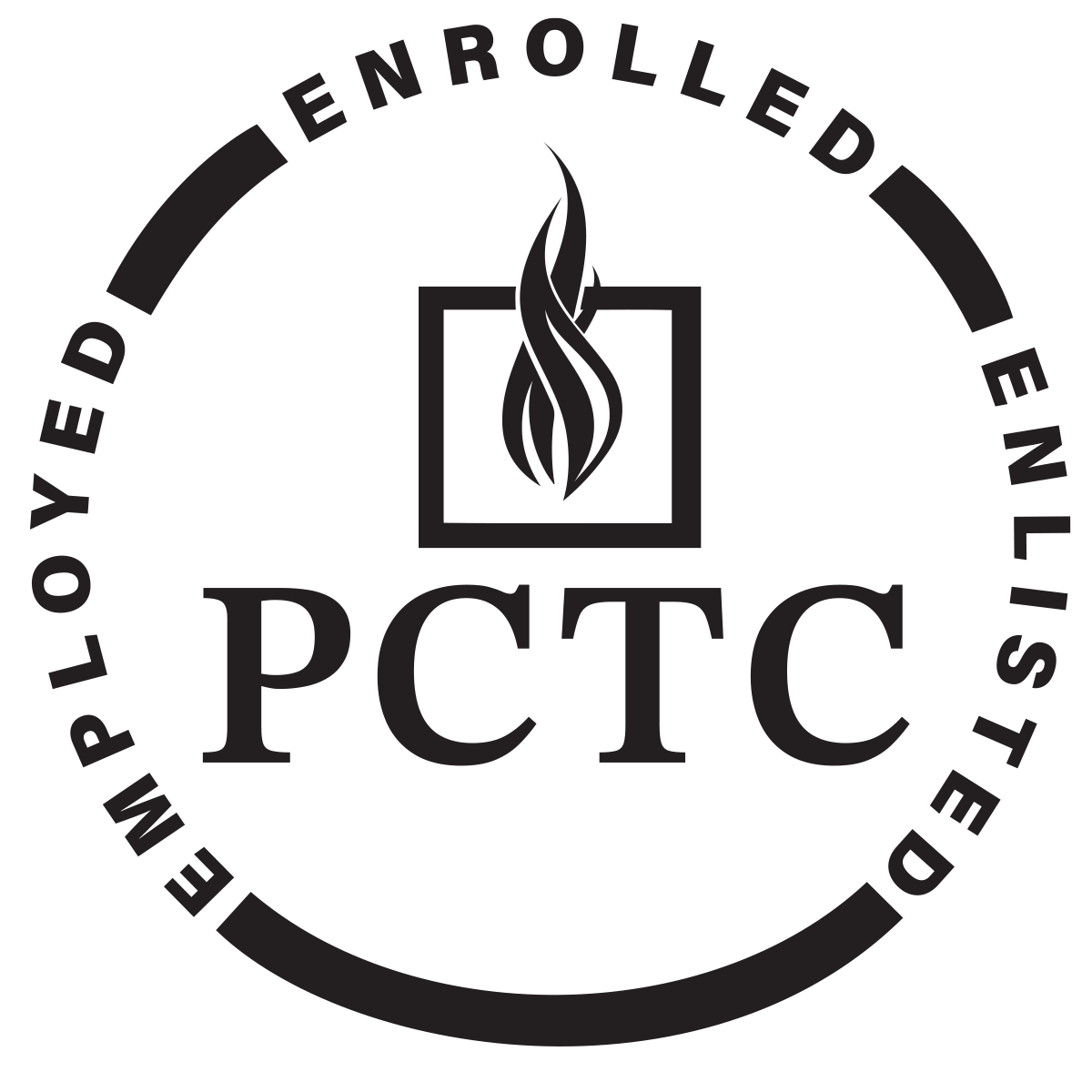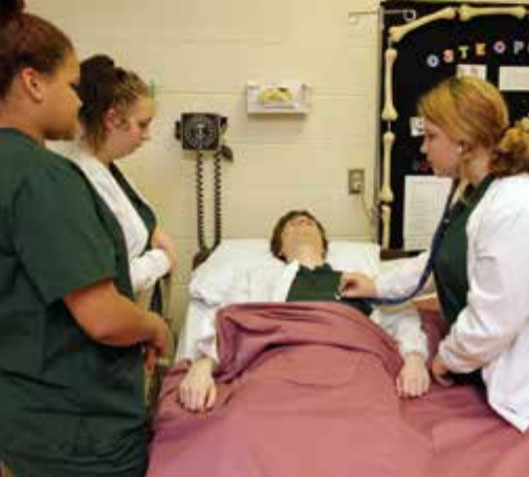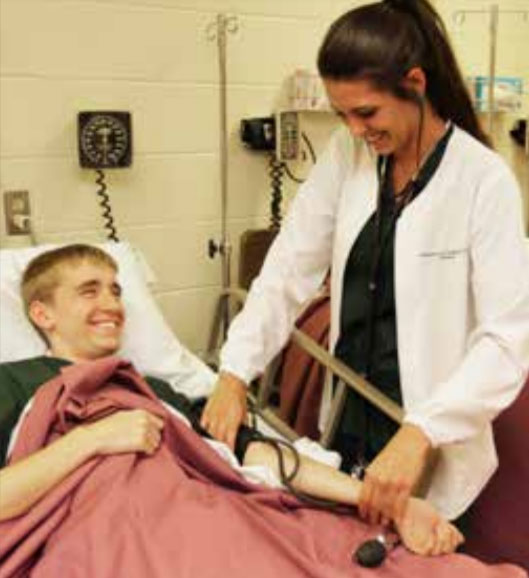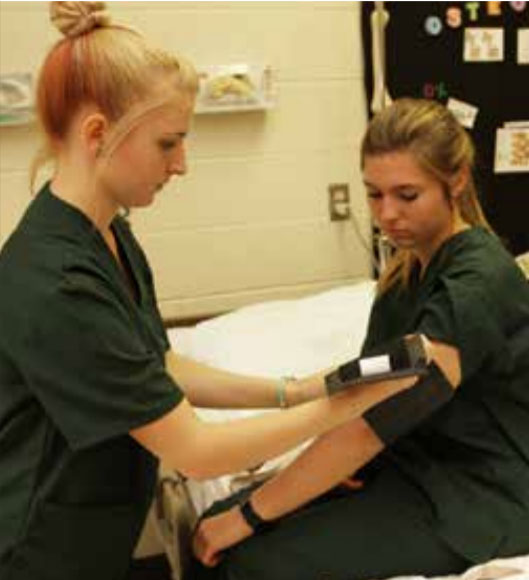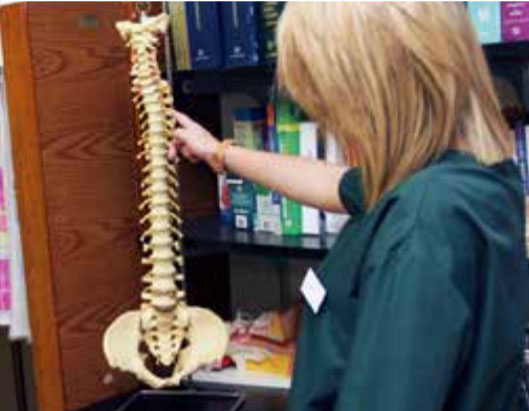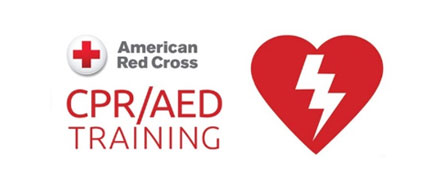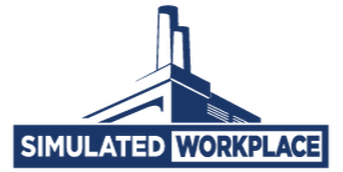DIRECT CARE
The Direct Care concentration allows the students to explore careers focused on changing the health status of the patient over time.
Health professionals in this concentration work directly with patients; they may provide care, treatment, counseling and health education information. Clinical experience requires students to obtain the Hepatitis B Vaccination, Flu Shot, and TB Test, as well as two (2) COVID vaccines. After successful completion of the Classroom instructions on skills and Medical Terminology, student will go to clinical area to use knowledge and apply to Patient Care.
WHAT ARE THE CLASSES ABOUT?
Healthcare Safety
Infection Control
Patient Care
Medical Terminology
WHAT SKILLS WILL STUDENTS LEARN?
Hand washing
Safety & Body Mechanics
Bathing
Feeding & Diets (Therapeutic)
Therapeutic Communication
Positioning Patient
Infection Control
Vital Signs
Bed manners
Patient Rights
Personal Protective Equipment usage
Transfer of Patient to Wheel Chair
Health Clinical Experience is designed to be used in conjunction with a Health Science Education course that includes a clinical specialization experience. Instructional content focuses on extending career preparation and technical skills associated with a previously selected clinical specialization.
Medical Terminology introduces students to the language of medicine. Students will gain an understanding of basic elements, rules of building and analyzing medical words, and medical terms associated with the body as a whole. Utilizing a systems approach, students will define, interpret, and pronounce medical terms relating to structure and function, pathology, diagnosis, clinical procedures, oncology, and pharmacology. In addition to medical terms, common abbreviations applicable to each system will be interpreted.
WHAT CERTIFICATIONS ARE AVAILABLE?
CPR & First Aid/AED
OSHA-10
NOCTI
Certified Direct Care Worker
WHAT JOBS/JOB TITLES ARE AVAILABLE TO THE STUDENTS AFTER GRADUATION?
Patient Care in Hospital & Assisted Living facilities
Home Health
Clinic and Doctor’s office
Hospice Care
WHAT WORK SKILLS WILL BE NEEDED FOR THESE JOBS?
Mathematical
Ability to lift 50 lbs.
Team work
Reading and Communication skills
Leadership Development
Technical Skills
WHAT SKILLS SHOULD A STUDENT HAVE TO BE SUCCESSFUL IN YOUR PROGRAM?
Students interested in the Direct Care Worker training at PCTC should be patient, and be compassionate. Students will also need to be drug free throughout the program.
PROGRAM PREREQUISITES
Student must obtain and show proof of the Hepatitis B, Flu and two (2) COVID Vaccinations as well as a TB Test prior to working in the clinical setting.
PROGRAM REQUIREMENTS
Students must maintain a “B” or better in each course to continue in the program and to be permitted to go to the clinical setting.
Students are required to wear scrub uniforms and clinic shoes at all times in the clinical setting. Students must provide their own clinic shoes meeting OSHA requirements.
SIMULATED WORKPLACE REQUIREMENTS
This program participates in the West Virginia Department of Education Simulated Workplace environment.
For more information and requirements, click here.
TECHNOLOGY REQUIREMENTS
Students will be provided with any technology instruction, devices and software required.
STUDENT ORGANIZATION
Students may enroll in SkillsUSA and/or HOSA
PROGRAM LENGTH
1 Academic Years (10 months) – 540 clock hours
Consisting of eight (4), nine-week courses of 135 clock hours each
SCHEDULE OF COURSES
Course Frequency: Each course offered once each academic year
1 YEAR SCHEDULE: MONDAY-FRIDAY 8:30AM – 11:00AM or 12:30PM – 3:00PM
0711 Foundations of Health Science
0715 Advanced Principles of Health Science
0789 Clinical Specialty I
0790 Clinical Specialty 2
0721 Embedded Medical Terminology
ELIGIBILITY REQUIREMENTS FOR CERTIFICATION
Students must earn at least an 80% on each course final exam, maintain a “B” average in the program and maintain at least 90% attendance in each course to be eligible to test for certifications.
COURSE DESCRIPTIONS
0711 Foundations of Health Science
This course is designed to allow instructional content to focus on basic medical terminology, growth and development, nutrition, health maintenance practices and healthcare delivery systems. It is designed to provide the student with knowledge and technical skills required for infection control and the prevention of disease transmission, CPR and First Aid.
0715 Advanced Principles of Health Science
Instructional content will focus on healthcare safety, environmental safety processes and procedures, ethical and legal responsibilities, and mathematical computations. Medical terminology and the reinforcement, expansion, and enhancement of biology content specific to diseases and disorders are an integral part of the course. Instruction will incorporate project and problem-based healthcare practices and procedures to demonstrate the importance of these skills. Students will develop basic technical skills required for all health career specialties including client/patient privacy, communication, teamwork, and occupational safety, and be provided with opportunities to obtain certifications in HIPPA/Data Privacy and health care safety.
0789 Clinical Specialty I
This course is designed to allow the student to choose a career work-based experience from the following specializations: Health Occupations, Certified Nursing Assistant, Certified ECG Technician, Certified Health Unit Coordinator, Certified Patient Care Technician, Certified Phlebotomy Technician, Community Emergency Response Team, Dental Aide, Dietary Aide, Direct Care Worker, Electronic Health Record Specialist, Environmental Services, Orientation to Practical Nursing, Laundry Aide, Physical Therapy Aide, Pre-Pharmacy Technician, Imagery Aide, Veterinary Science Aide. Upon successful completion of the prerequisite courses in the Health Science Education Program of Study, students will be provided the opportunity in Clinical Specialty I to participate in a work based clinical experience. Students choose a health career specialty for in-depth study and must complete a minimum of 25-55 hours in an applicable clinical rotation. Instruction is guided by career-specific content skill sets that must be mastered before students are eligible to attain established credentials and/or industry validation. Within this course, students focus upon employability skills and career development, and apply healthcare information technology and technical skills. Instruction will incorporate project and problem-based healthcare practices and procedures to demonstrate the criticality of these skills. Due to healthcare industry standards, exemplary attendance is mandatory.
0790 Clinical Specialty 2
This course is designed to allow the student to choose a career work-based experience from the following specializations: Health Occupations, Certified Nursing Assistant, Certified ECG Technician, Certified Health Unit Coordinator, Certified Patient Care Technician, Certified Phlebotomy Technician, Community Emergency Response Team, Dental Aide, Dietary Aide, Direct Care Worker, Electronic Health Record Specialist, Environmental Services, Orientation to Practical Nursing, Laundry Aide, Physical Therapy Aide, Pre-Pharmacy Technician, Imagery Aide, Veterinary Science Aide. Upon successful completion of the prerequisite courses in the Health Science Education Program of Study, students will be provided the opportunity in Clinical Specialty I to participate in a work based clinical experience. Students choose a health career specialty for in-depth study and must complete a minimum of 25-55 hours in an applicable clinical rotation. Instruction is guided by career-specific content skill sets that must be mastered before students are eligible to attain established credentials and/or industry validation. Within this course, students focus upon employability skills and career development, and apply healthcare information technology and technical skills. Instruction will incorporate project and problem-based healthcare practices and procedures to demonstrate the criticality of these skills. Due to healthcare industry standards, exemplary attendance is mandatory.
0721 Embedded Medical Terminology
Through the study of medical terminology, the student will be introduced to the language of medicine. Students will gain an understanding of basic elements, rules of building and analyzing medical words, and medical terms associated with the human body utilizing a systems approach.
